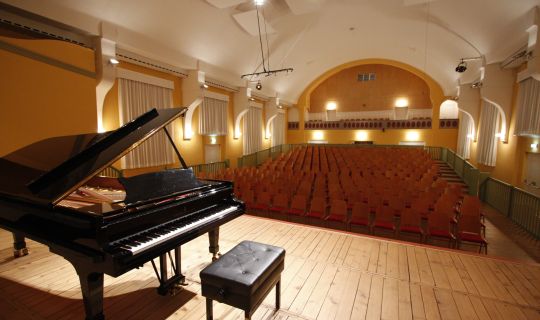The success story actually came about as a makeshift solution. In 1946, the city of Bregenz didn’t have a stage big enough to host Mozart’s early work ‘Bastien et Bastienne’ and so two gravel barges close to the gondola harbour were turned into the first opera stage on the lake. Even then, the audience was delighted by the charm of this location.
Visitors from Austria, Germany, Switzerland and France already turned the festival into an international event in its very first year. Four years later, Bregenz Festival was given its first permanent lake stage on wooden posts. On rainy nights, around 1,000 visitors and the artists relocated to a nearby gymnasium where the play was performed. The lake stage was ultimately renewed and enlarged in 1979 and the Festspielhaus (Festival Theatre) was opened in 1980. This meant that it was possible to relocate straight to the theatre as soon as bad weather struck.
The Vienna Symphony travelled to Bregenz in its capacity as the festival orchestra for the very first production – it remains a permanent fixture at the Bregenz Festival to this day.
In 1998, the festival with its lake stage, the big hall in the Festspielhaus and the new Werkstattbühne (Workshop Stage) created the foundation for an extensive broadening of the programme. A total of 12,000 seats are now available. The festival reaches around 10,000 young people in the form of the cross-culture programme every year.
The Magic Flute – already a huge breakthrough in 1985 – was staged for the second time in 2013. It was met with enthusiastic reviews by the press, which demanded more of the same. Productions have been performed for two years in a row ever since then and the stage structures have become more stable, more lavish.
The new artistic director Lilli Paasikivi from Finland is in charge of the programme as of 2025. After 'Turandot' came 'Carmen', followed by performances of Giuseppe Verdi's 'Rigoletto' in 2019 and 2021. In 2022 and 2023, 'Madame Butterfly' graced the festival stage. Now, with 'Der Freischütz', an emotionally charged and gripping opera takes center stage on the lake stage.











